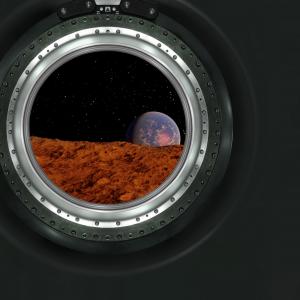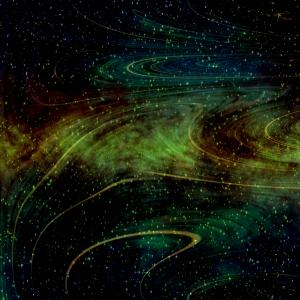
Jenna Freudenburg is an astronomer at The Ohio State University who studies the large-scale structure of the universe. You can follow her on Twitter at @TheJFreud.
Posts By This Author
Will Science Have Its Own #MeToo Reckoning?
Common social biases and their detrimental effects on marginalized people are well-documented phenomena within scientific communities. And lot of this evidence comes from our own professional organizations. And yet the notion persists that scientific principles go hand in hand with objectivity in all areas of a scientist’s life. In the face of a weight of evidence pointing manifestly toward pervasive bias in the sciences, we remain willfully ignorant of our own internal workings.
Mars, Long a Symbol of Hope, Now Also One of Urgency

Image via HelenField/Shutterstock.com
There’s nothing wrong with celebrating human ingenuity and determination, but the approach here is simplistic. It may well be true that settlements on Mars are the only hope for our species to continue, and should humanity pursue this course, acts of heroism may well be required. But going about this endeavor the right way must involve a healthy dose of self-reflection, and in this regard Mars has missed an opportunity. For one thing, despite the message that expansion to Mars is imperative for the survival of the human race, there is no discussion of the human contribution to our planet’s eventual uninhabitability. It’s possible that Earth could be hit by a sizable asteroid, or that a super volcano could erupt, but anthropogenic climate change and nuclear warfare pose far greater threats to our flourishing over the next few centuries. If we are going to switch planets in order to save ourselves, we can’t ignore the fact that we bring our destructive power with us.
The God of the Gravitational Waves

Image via AbstractUniverse/Shutterstock.com
Scientifically speaking, gravitational waves are a whole new way of experiencing our universe — who knows what we’ll discover now that we can listen AND see? And I’m a Christian as well as an astronomer, so I can’t help but consider what it means for my faith when the frontiers of science are advanced in such a fundamental way.
Many Christians find this advance threatening. They reason as follows: If science is explaining more and more of the world, then there is less and less room in the picture for God. Creationism is the most well known example of this logic. A creationist finds the theory of evolution insidious because, to their way of thinking, if we accept the idea that life emerged from the primordial soup and evolved into humans, how can we claim to be created by a divine Maker?
